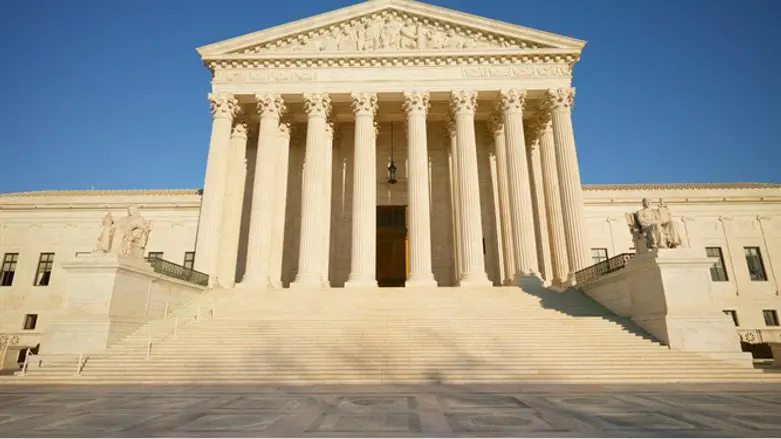
The United States Supreme Court on Monday granted the Trump administration's request to temporarily lift restrictions on the President's travel ban, The Hill reports.
In a one-page order signed by Justice Anthony Kennedy, the court temporarily blocked the part of last week's 9th Circuit Court of Appeals ruling that barred the government from prohibiting refugees that have formal assurances from resettlement agencies or are in the U.S. Refugee Admissions Program from entering the U.S.
Kennedy said that part of the decision is stayed pending the receipt of a response from the state of Hawaii. That response that is due by noon on Tuesday.
Trump’s updated order bars people from Iran, Libya, Somalia, Sudan, Syria and Yemen from entering the U.S.
The travel ban in question is an updated order issued by the President after his initial order was dismissed by the court. The order is temporary, until proper vetting procedures – a central campaign promise of Trump’s – can be implemented.
The Supreme Court's decision on Monday came less than two hours after Acting Solicitor General Jeffrey Wall filed a request for a stay.
In its opinion last week, the 9th Circuit also blocked the government from banning grandparents, aunts, uncles and other extended family members of a person in the U.S. from entering the country.
The administration said it decided not to fight the “close-family aspect of the district court’s modified injunction.”
Wall said in his request to the court that that part of the ruling was “less stark” than the nullification of the order’s refugee provision.
“Unlike students who have been admitted to study at an American university, workers who have accepted jobs at an American company, and lecturers who come to speak to an American audience, refugees do not have any freestanding connection to resettlement agencies, separate and apart from the refugee-admissions process itself, by virtue of the agencies’ assurance agreement with the government,” Wall wrote, according to The Hill.
“Nor can the exclusion of an assured refugee plausibly be thought to 'burden' a resettlement agency in the relevant sense,” he added.
The Supreme Court handed Trump a partial win in June when it allowed the administration to temporarily block people from the six predominantly Muslim countries from entering the U.S. But the court carved out an exemption for people with a bona fide relationship with a person or entity in the country.
The federal district court judge in Hawaii who blocked Trump’s order in March further weakened it in July by including grandparents, grandchildren, brothers-in-law, sisters-in-law, aunts, uncles, nieces, nephews and cousins of people in the U.S and refugees working with resettlement agencies in the definition of what constitutes a bona fide relationship.
The Supreme Court will hear arguments in two cases that have been consolidated challenging the ban on October 10.